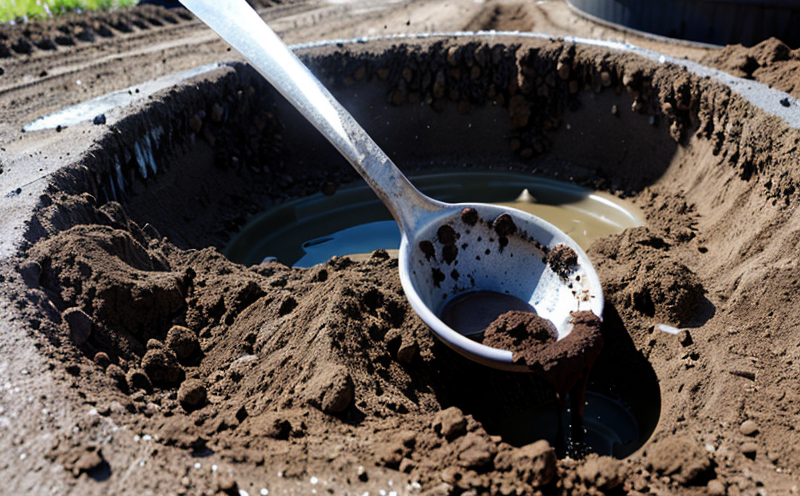APHA 5210B Biological Oxygen Demand BOD of Sludge Extract Test
The Biological Oxygen Demand (BOD) test, specifically the APHA 5210B method, is a critical procedure used to measure the amount of oxygen that microorganisms will consume in breaking down organic matter present within sludge or biosolids. This test is essential for wastewater treatment plants and facilities dealing with solid waste management as it helps in understanding the biodegradable content of the sludge. The primary objective is to provide a quantitative assessment of the potential environmental impact once the sludge is released into the environment.
The BOD measurement under APHA 5210B provides insights into the biological activity and health of the microorganisms present in the sludge sample. By conducting this test, facilities can ensure that they are meeting regulatory standards and optimizing their treatment processes to minimize environmental harm. This method is widely recognized internationally, aligning with ISO standards for water quality assessment.
Typically, the BOD test involves inoculating a known volume of sludge extract into an oxygenated medium under controlled conditions. The sample is then incubated at 20°C ±1°C for five days. During this period, microorganisms consume dissolved oxygen as they decompose organic matter in the sample. After the incubation period, the change in dissolved oxygen concentration is measured to calculate the BOD value.
The significance of the APHA 5210B test extends beyond just compliance; it plays a vital role in R&D efforts aimed at improving treatment processes and optimizing resource recovery from sludge. For instance, understanding the biodegradable fraction helps facilities design more effective anaerobic digestion systems or identify potential nutrient-rich materials for agricultural use.
The accuracy of BOD measurements is crucial for several reasons:
- It ensures consistent quality in wastewater treatment processes,
- It supports decision-making regarding the reuse and disposal of sludge,
- It helps monitor the effectiveness of pollution control measures over time.
The test results can also inform procurement decisions by providing data on the biodegradability of different sludges, which is particularly important for facilities looking to source sustainable materials. In summary, APHA 5210B BOD testing is an indispensable tool in the management and utilization of sludge and biosolids.
Why It Matters
The BOD test under APHA 5210B is not just a compliance requirement; it’s a strategic asset for facilities dealing with sludge and biosolids. The primary impact lies in its ability to provide actionable insights into the biological activity of microorganisms within these samples.
- Environmental Protection: Accurate BOD measurements ensure that released sludge does not deplete oxygen levels in water bodies, thus preventing ecological harm.
- Resource Optimization: By identifying biodegradable components, facilities can optimize resource recovery and reuse strategies.
- Compliance Assurance: The test helps facilities meet stringent environmental regulations set by local authorities and international standards.
The results of the BOD test are also valuable for R&D purposes. They enable engineers to refine treatment processes, improve efficiency, and explore novel applications for sludge.
In summary, the APHA 5210B test is a cornerstone in sustainable waste management practices, ensuring that facilities operate within regulatory frameworks while optimizing resource use and minimizing environmental impact.
Eurolab Advantages
EuroLab, as an accredited laboratory with extensive experience in water & wastewater testing, offers unparalleled expertise in conducting the APHA 5210B BOD test. Our facilities are equipped with state-of-the-art instrumentation and trained professionals who adhere strictly to international standards, ensuring accurate and reliable results.
- Accreditation: We hold ISO/IEC 17025 accreditation, guaranteeing the highest quality of testing services.
- Experience: Our team has extensive experience in handling various sludge types, ensuring consistent and accurate results.
- Technology: Leveraging advanced analytical tools, we provide precise BOD measurements that are crucial for regulatory compliance.
We also offer customized testing packages tailored to the specific needs of our clients. Our services extend beyond just conducting tests; we can assist in sample preparation and interpretation of results, providing comprehensive support throughout your project lifecycle.
At EuroLab, we pride ourselves on delivering reliable data that you can trust. Our commitment to excellence ensures that every BOD test conducted meets the highest standards, thereby supporting sustainable waste management practices.





